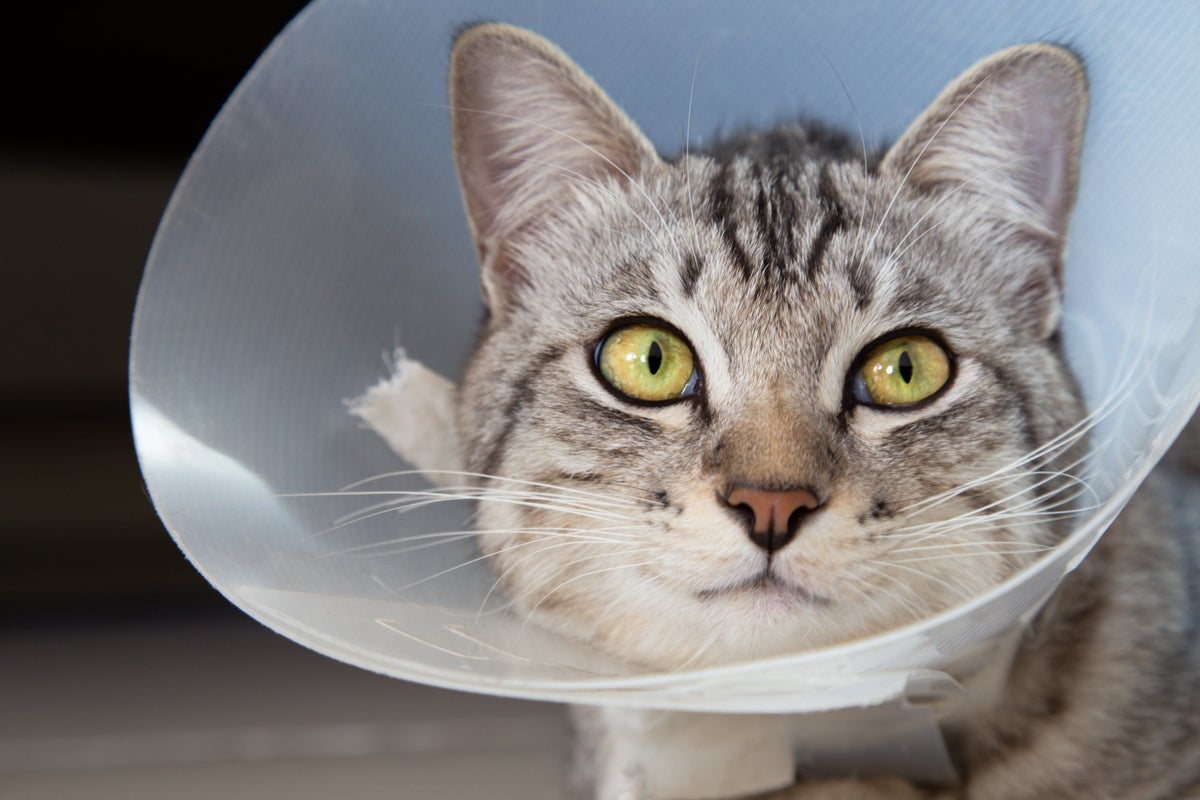
Boris Johnson's Brexit deal is set to create a shortage of veterinary medicines for sick animals in Northern Ireland, a parliamentary committee has warned.
Over half of veterinary medicines used in the territory are expected to be become unavailable when the Northern Ireland protocol agreed by the UK and EU comes into full force at the end of the year.
The EU has so far extended grace periods on the medicines to allow them to be used in Northern Ireland until the end of 2022 – but supply chains are yet to adjust and MPs and ministers say they are extremely concerned.
Drugs affected are expected to include those for cardiovascular conditions, anaesthetics and vaccines, including those that prevent salmonella and E. coli.
An official report released by the House of Commons European Scrutiny Committee this weeks says MPs have written to the Government "expressing our profound concerns about the impact of the Northern Ireland Protocol on the availability of veterinary medicines in Northern Ireland".
"While grace periods are currently in place, the full application of the new rules to NI would leave potentially half of all veterinary medicines for a variety of animals and livestock facing discontinuation in NI," the MPs say.
Talks to find a long-term solution to the problem have stalled amid a breakdown in relations between London and Brussels.
The European Commission has seven legal cases open against the UK government for breaking the NI protocol, while Mr Johnson has upped tensions by trying to unilaterally change the deal.
The EU has already amended its rules on human medicines to ensure that shortages do not emerged, but a similar change has not come into force for veterinary medicines.
The situation has occurred because Northern Ireland is effectively treated as part of the EU for most trade purposes, and EU regulations are set to restrict the import of animal medicines produced in Great Britain because it is no longer a member state.
MPs on the scrutiny committee said: "The EU’s readiness to amend its rules on human medicines to take into account supply chains between GB and Northern Ireland—as well as Cyprus, Ireland and Malta— but not to amend its rules on veterinary medicines is frustrating.
"This is particularly so given the relatively small and fragmented nature of the veterinary medicines market, leaving Northern Ireland highly vulnerable to a significant reduction in the availability of veterinary medicines, with consequent implications for animal health and welfare."
Mark Little, senior vice president of British Veterinary Association Northern Ireland branch, told The Independent: “BVA continues to be concerned about vet medicine availability in Northern Ireland as a result of Brexit and the impact of the Northern Ireland Protocol.
“We believe it is a very significant issue, not only for animal health and welfare but also for public health, the food supply chain and the NI farming economy. We continue to engage with government and industry to better understand the issue and seek urgent solutions.”
Earlier the month Northern Ireland's agriculture minister Edwin Poots said the situation was "most disconcerting".
"The discontinuation of vaccines in NI would have severe repercussions for animal health and welfare here and give rise to unnecessary animal suffering, not to mention the risk it would present to human health and trade," he said.
“I have stated on many occasions that it is completely unacceptable that the Protocol would prevent NI from having access to the same veterinary medicines as other parts of the UK. It is, therefore, of the utmost importance that all possible steps are taken to prevent suppliers from withdrawing or reducing the range of products available in NI and protect the availability of medicines here.”
Mr Poots said the extension of grace periods to the end of the year was "simply not enough".
“I note that talks between the UK and EU on this matter have stalled. I, therefore, recently wrote to both the Secretary of State for Environment, Food and Rural Affairs and the European Commission calling for urgent action to find a sensible, permanent and pragmatic solution to the matter," he said.
"If an agreed solution is not possible, I have also urged the Secretary of State to take any measures at his disposal, including the exercise of any powers that may be available to him under the NI Protocol Bill, to ensure that the disturbing picture painted by industry does not become a reality and that the welfare of animals here is not needlessly but at risk.”







